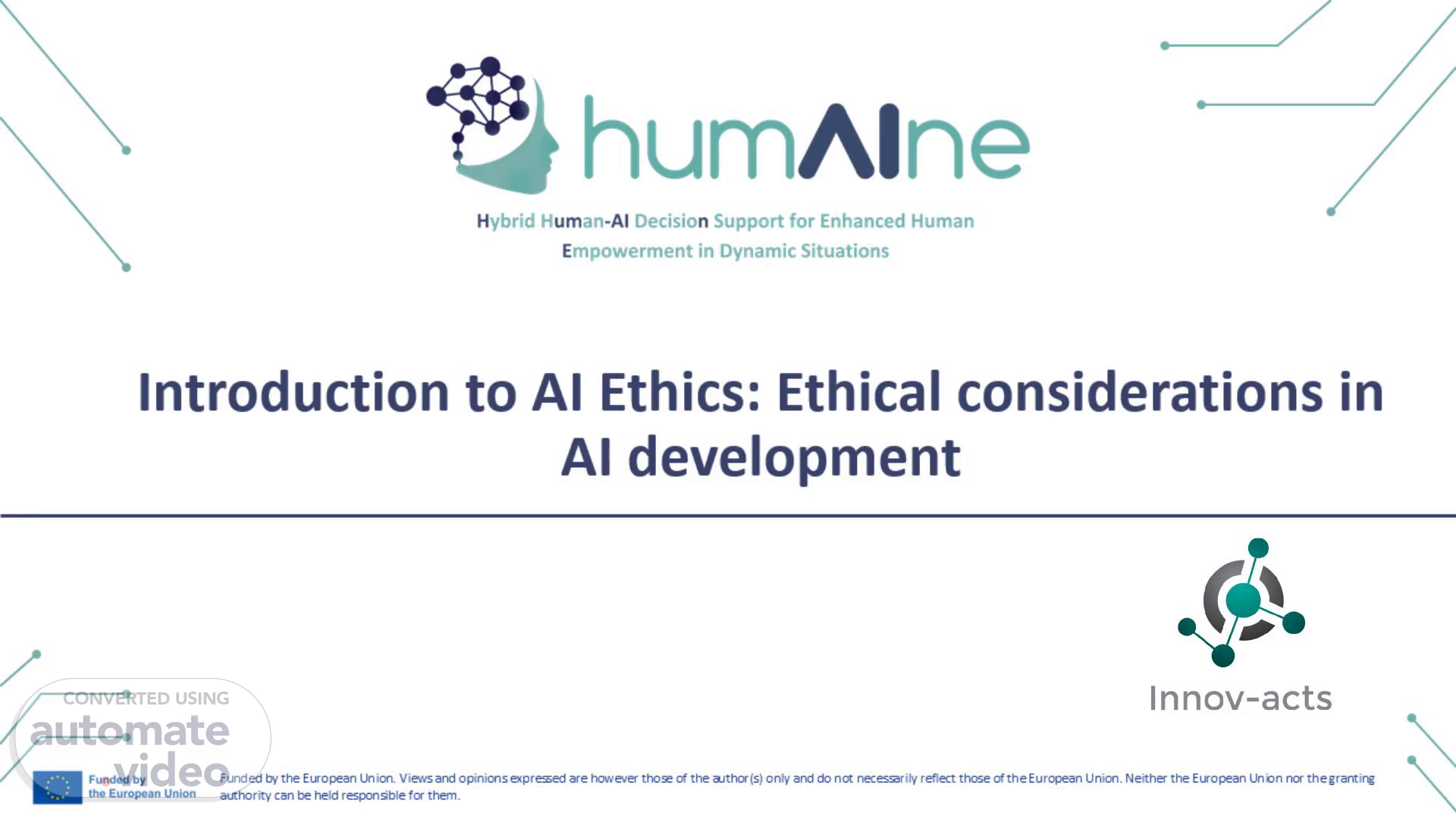Scene 1 (0s)
[Audio] Introduction to AI Ethics: Ethical considerations in AI development.
Scene 2 (9s)
[Audio] Ethics plays a crucial role in how we develop and deploy AI systems. As AI becomes more integrated into our daily lives, understanding its ethical implications is essential. This presentation explores key ethical considerations that help ensure AI is used responsibly and for the benefit of society..
Scene 3 (32s)
[Audio] AI systems often function as 'black boxes,' making it difficult for users to understand how decisions are made. This lack of transparency can lead to mistrust, especially if the outcomes seem biased or unfair. Ethical AI promotes transparency and explainability, giving users and developers a clear understanding of how AI systems work and make decisions..
Scene 4 (1m 0s)
[Audio] As AI systems gain more autonomy, accountability becomes a critical factor. When mistakes occur, it's vital to know who is responsible. Ethical AI development includes mechanisms for error detection and correction and ensures that responsibility can be properly attributed to developers or operators..
Scene 5 (1m 23s)
[Audio] Bias in AI can result in serious consequences, like discrimination. AI systems learn from data, so if the data is biased, the outcomes will reflect those biases. Ethical AI development addresses this by using diverse datasets, conducting bias audits, and implementing safeguards to reduce unjust impacts..
Scene 6 (1m 53s)
[Audio] AI relies on large amounts of data, which raises significant privacy concerns. Protecting user data is at the core of ethical AI. This involves anonymizing data, obtaining informed consent, and adhering to data protection regulations to maintain trust and ethical standards..
Scene 7 (2m 15s)
[Audio] Balancing human control with AI autonomy is essential. AI should enhance human capabilities, not replace them. Ethical AI empowers individuals by giving them the tools and knowledge to govern AI systems and maintain control over decisions..
Scene 8 (2m 38s)
[Audio] AI has a broad impact on society, influencing employment, inequality, and access to resources. Ethical AI development focuses on promoting fairness, inclusivity, and equitable distribution of benefits. It's about ensuring that AI serves society's needs without leaving anyone behind..
Scene 9 (3m 2s)
[Audio] Collaboration is key to ethical AI development. Researchers, developers, policymakers, and end-users all bring unique perspectives. By working together, we can identify and address ethical concerns, ensuring AI aligns with shared values and meets societal needs..
Scene 10 (3m 25s)
[Audio] In conclusion, we've explored critical ethical considerations in AI development: transparency, accountability, fairness, privacy, human control, and social impacts. The integration of these principles into AI systems can create responsible technologies that have a positive impact on society and help shape a better future..
Scene 11 (3m 52s)
Thank you for your attention!. humaine-horizon.eu.
